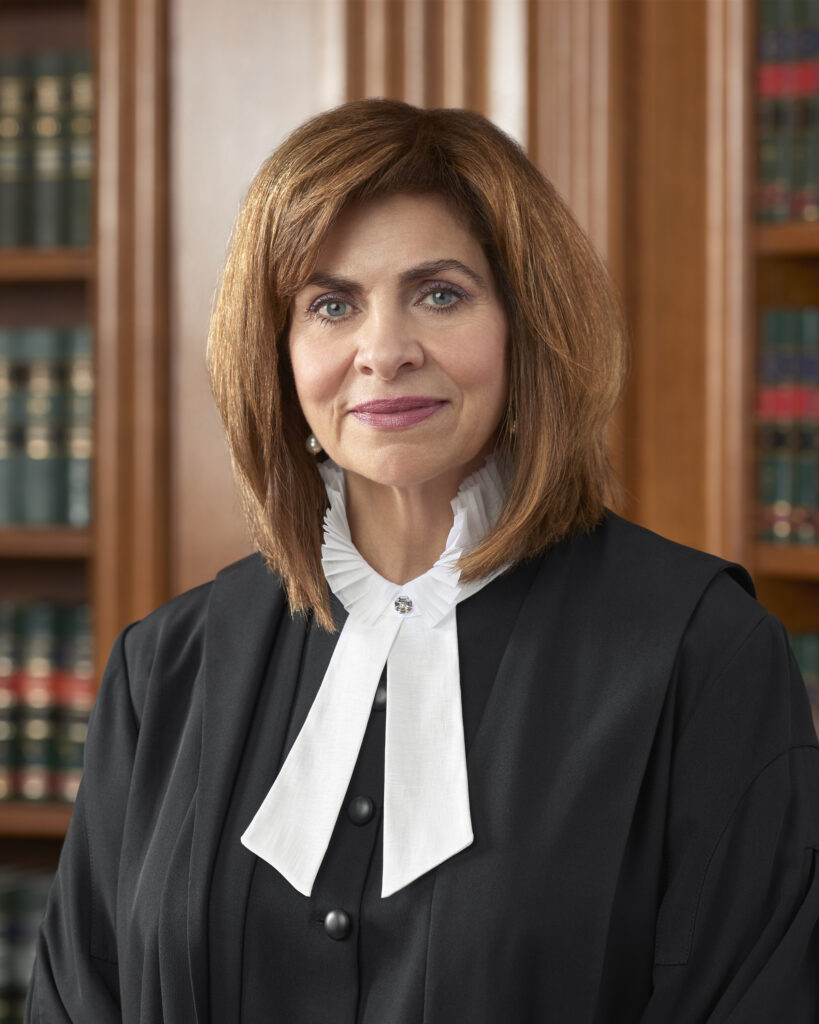Andromache Karakatsanis (LLB ’80), Osgoode Hall Law School alumna and Canada’s longest-serving Supreme Court justice, welcomed Osgoode’s Class of 2026 with an encouraging speech and some words of wisdom.

Supreme Court of Canada Collection
Appointed to the Supreme Court in 2011, Justice Karakatsanis looked back fondly on her legal education at Osgoode, and especially her experience at Parkdale Community Legal Services, which she called “transformative.”
“That was one of the reasons that I came to Osgoode,” she told the students. “I grew up in an immigrant household, in a warm, supportive environment. At Parkdale, I encountered people who had not had that, and it really opened my eyes. It brought home for me that the law is about helping people.”
Karakatsanis, who grew up in Toronto working in her parents’ Greek restaurant, told the students that they will quickly learn in the legal profession that their reputation is everything. And that, while advocacy is important, it should not cloud their ethical standards, analytical skills or good judgment.
“How you live your life is as important as what you do in your life,” said Karakatsanis. “So how you can enrich the community, the human connections we make and the small kindnesses are just as important as any grade you achieve.”
During a question-and-answer session following her speech, incoming Osgoode Dean and Professor Trevor Farrow noted that Justice Karakatsanis’s message resonated strongly with the school’s distinctive emphasis on legal ethics – beginning in first year with its first-semester Ethical Lawyering in a Global Community course.
Karakatsanis went on to advise students against feeling the need to have a grand plan for their law career. “No matter what you choose to do in life, law school will serve you well,” she said. “These skills will prepare you to open your mind to the world and to become involved in your communities. Be open to opportunities that interest or challenge you.”
She left the students with one final takeaway about dealing with career or academic disappointment and persevering despite it. After law school, she said, her goal was to become a Crown attorney, but she was passed over. “I was devastated,” she recalled. “I thought my career was over before it began.
“Why do I tell you this story?” she asked. “Because when one door closes, another opens.”


